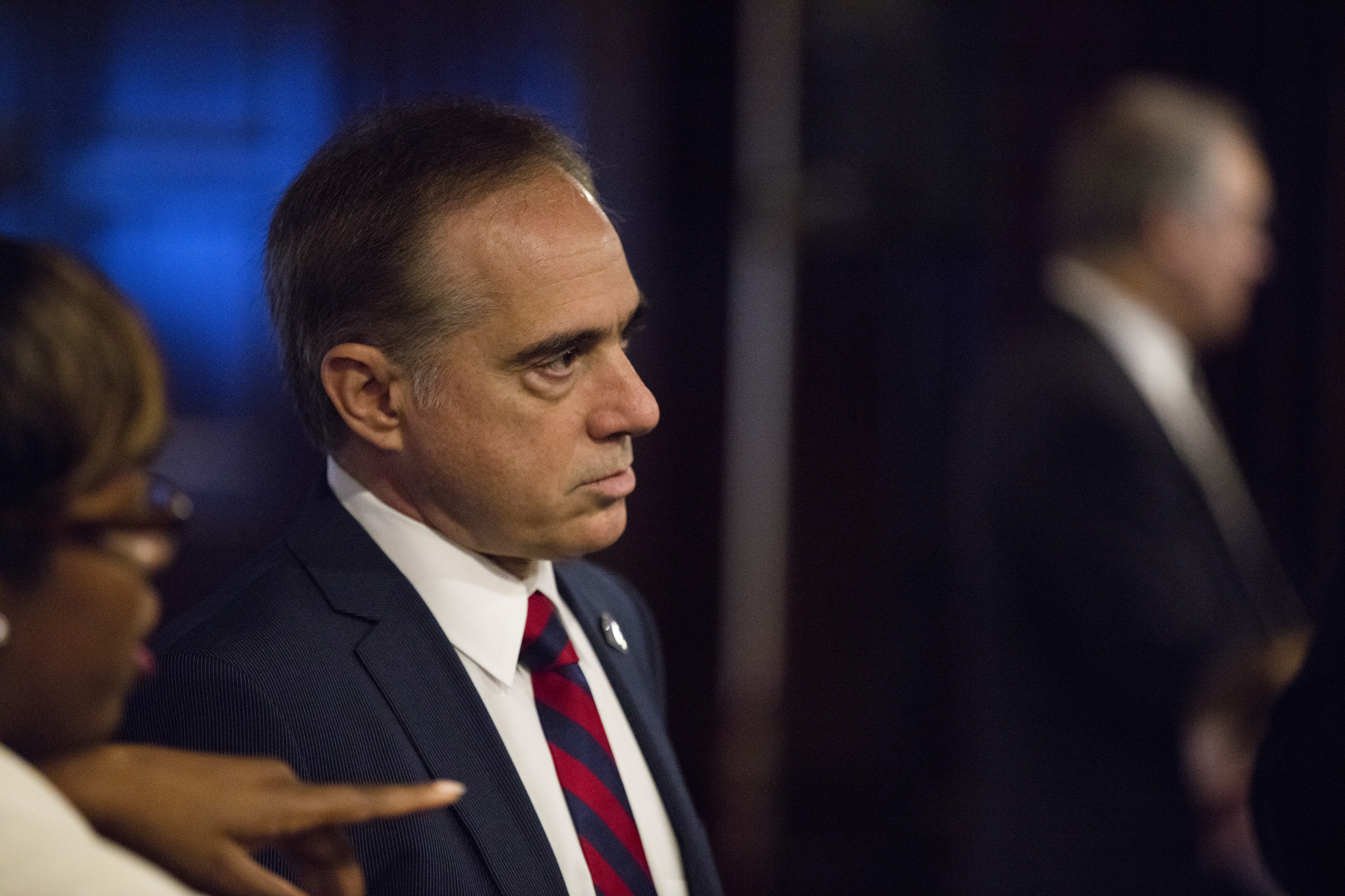It’s not clear to me whether David Shulkin technically resigned as secretary of Veterans Affairs or was fired. But in an op-ed today, he made it very clear that he was pushed out.
I believe differences in philosophy deserve robust debate, and solutions should be determined based on the merits of the arguments. The advocates within the administration for privatizing V.A. health services, however, reject this approach. They saw me as an obstacle to privatization who had to be removed. That is because I am convinced that privatization is a political issue aimed at rewarding select people and companies with profits, even if it undermines care for veterans.
The Washington Monthly has been at the forefront of reporting on attempts to privatize the VA, as was captured in an article by Alicia Mundy titled “The VA Isn’t Broken, Yet” published in the spring 2016 edition of the magazine. Running contrary to what most of the mainstream media had done with the so-called “scandals” at the VA, Mundy documented that they were all the creation of a group that was relatively new to veterans issues, Concerned Veterans of America (CVA).
Nearly the whole of the Republican Party has become more radically antigovernment in recent years. And since the spring of 2014, when headlines started appearing about long wait times and cover-ups at some VA hospitals, a strong narrative has built up, including in the mainstream media, that the system is fundamentally broken…
Yet beneath the surface of events, a far different, deeper, and more consequential story is unfolding. The CVA, it turns out, is the creation of David and Charles Koch’s network. The Koch family has famously poured hundreds of millions of dollars into think tanks, candidates, and advocacy groups to advance their libertarian views about the virtues of free markets and the evils of governments and unions. Seldom, however, has one of their investments paid off so spectacularly well as it has on the issue of veterans’ health care. Working through the CVA, and in partnership with key Republicans and corporate medical interests, the Koch brothers’ web of affiliates has succeeded in manufacturing or vastly exaggerating “scandals” at the VA as part of a larger campaign to delegitimize publicly provided health care.
It is worth keeping in mind that Shulkin was actually a hold-over from the Obama administration and was therefore very familiar with the tactics that were designed to undermine the VA and promote privatization. When it comes to Donald Trump, Isaac Arnsdorf documented a big shift on the VA that came during the campaign.
Trump’s original policy proposals on veterans health, unveiled in October 2015, largely consisted of tweaks to the current system. They called for increasing funding for mental health and helping vets find jobs; providing more women’s health services; modernizing infrastructure and setting up satellite clinics in rural areas.
The ideas drew derisive responses from the Koch brothers-backed group Concerned Veterans for America (CVA). Pete Hegseth, its then-CEO, called the proposal “painfully thin” and “unserious.”
Trump then took a sharp turn toward CVA’s positions after clinching the Republican nomination…Trump’s new 10-point plan for veterans policy resembled the CVA’s priorities. In fact, six of the proposals drew directly on CVA ideas. Three of them aimed to make it easier to fire employees; a fourth advocated the creation of a reform commission; and two involved privatizing VA medical care.
Arnsdorf claims that it was Jeff Miller, then the chairman of the House veterans committee who has since resigned from Congress, that got to Trump. We’ll probably never know. But it was Miller who came after the piece by Mundy here at the Washington Monthly, attacking the story’s key findings as “completely false.” You can read the response from Paul Glastris to those charges here.
As Shulkin made clear in his op-ed today, this is the battle in which he was immersed at the VA and ultimately cost him his job. Dr. Jackson, his successor and a career naval officer, has no experience handling a bureaucracy like the VA, much less in the midst of this raging battle. His one qualification seems to be that Trump likes him, which is not a ringing endorsement. However, Trump once again bypassed nominating Pete Hegseth, the former executive director of CVA, to the position.
If Shulkin is correct and his ouster is an attempt to clear the field for privatization of the VA, it is important to note that there are at least eight veterans organization (that are not Koch-funded) who have spoken out against the plan.
Those who opposed the plan agree the VA needs to be improved, but they argue that essentially privatizing it would force veterans to search for care at private facilities that might not be trained or equipped to serve veterans suffering from the long-range effects of combat, such as spinal cord injuries “and the Polytrauma System of Care.” The authors add that the proposal ignores recent research, some commissioned by Congress itself, that found that VA care is often better than care in the private sector.
Should the Trump administration forge ahead with this privatization scheme, Glastris noted that it would be a classic example of the dynamic we’ve witnessed very often from this administration—”the working class GOP base (in this case veterans) being sold down the river by the conservative Washington political class to advance its free market ideology and enrich its corporate cronies.”



